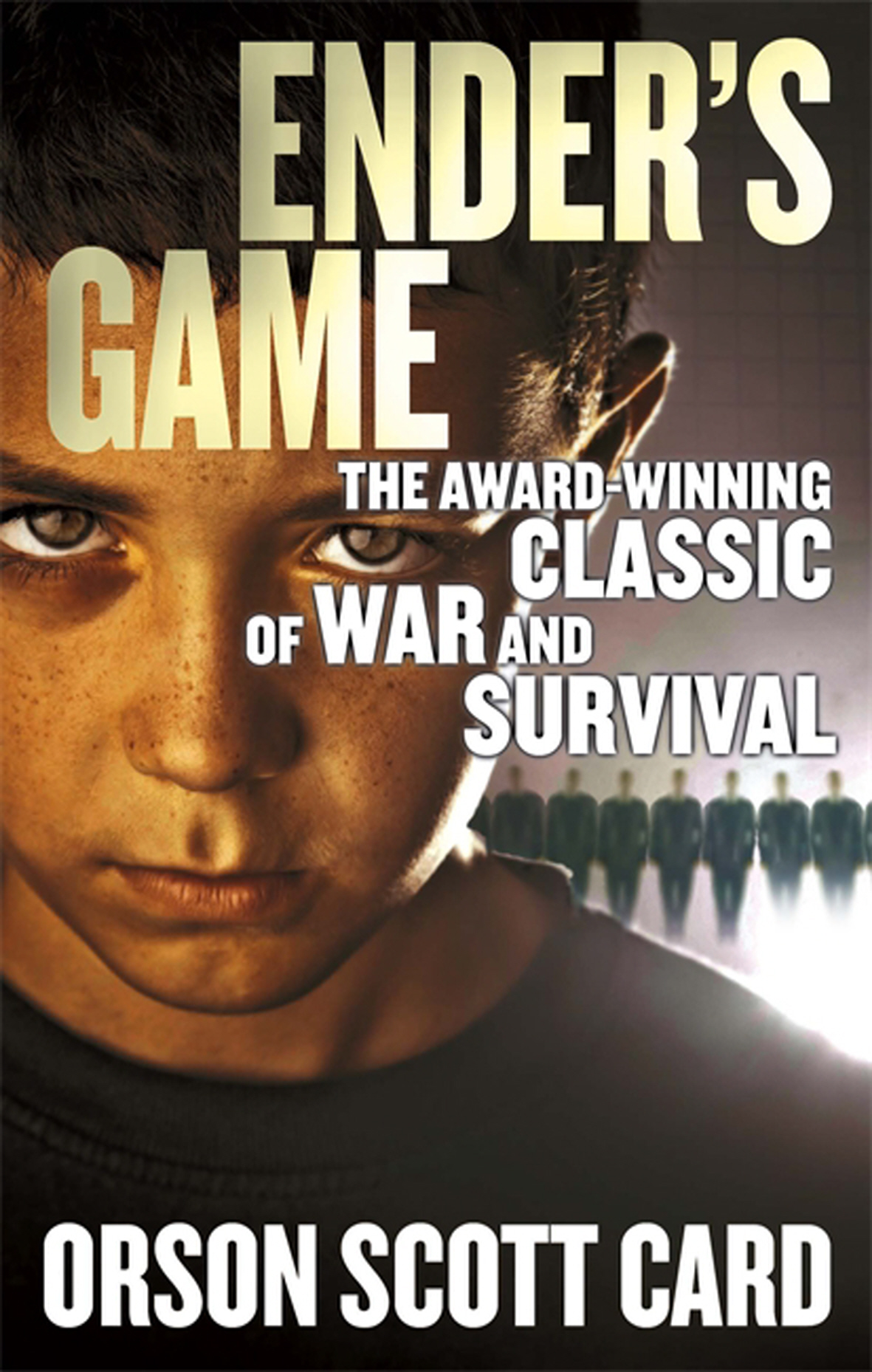 |
| I think they're making a movie... |
The book? Well sheesh, it's in the title... Ender's Game. Yeah, I know, I'm behind. Anyway, written in 1985 by Orson Scott Card, the book is a military science fiction novel that touches on some interesting themes. I enjoyed every second of it, not just because it was a great read, but because I learned some powerful lessons from it.
Lesson #1. Surprise the Reader
Three-fourths of the way through the book, I thought it was good. Then in the last quarter, I realized it wasn't good at all. It was stunning, flabbergasting, shocking, glorious, and brilliant.Why? Because it surprised me.
If you haven't read the book, I won't give the plot twist away. But go read it. Seriously. Now. And once you pick it up, forget I told you there was a surprise coming, because I want you to relish it. (Though in all honestly, I realized what was happening before I technically was supposed to. But it was still awesome.)
Have you finished it now? Good. Wasn't that cool? When I finished reading that, I automatically loved the book, not necessarily because I liked the twist, but because the author managed to surprise me. To do something I didn't expect.
Now, I'm not recommending you go out and like add some insane twist at the end of your book that will shock your readers and make them go "wait, what"? Because that's not what Ender did. The moment I got the twist, it changed the meaning of what happened in the rest of the book. I realized he had, in fact, been leading up to this, dropping hints here and there that suddenly all made sense. He gave some explanation after the first shock of the twist, but what made it work was that it didn't need the explanation to make sense. It was nice, but it wasn't necessary, because it made sense.
I know I'll enjoy reading Ender a second time through, even though the surprise won't be there anymore, because I will read everything in the first 3/4 with new eyes. I'll be looking for the signs that anticipate the climax.
So surprise your reader. Find the balance between a pleasant surprise and unbelieving shock by leading up to it-- without giving too much away. Hard? Yeah. Hint: The key to the riddle should not be backstory.
Tips for Implementing Lesson #1:
--Study the art of successful plot twists. Take a book with a powerful plot twist that shocked you (in a good way) and study how they anticipated the great event. Did they write scenes with double meanings- that meant one thing before, and another after? Was there an object, phrase, person, or type of event that kept popping consistently, but had no real explanation until after the revelation? Did the author disguise character motivations?--Brainstorm ways you can surprise your reader, even if it's not in the climax or a part of the central story line. Can you reveal an astonishing trait or motive in a character? What about an unknown relationship? Can you throw in some kind of Chekhov's gun?
Lesson #2. Be Aware of Your Message
It wasn't until after my initial impression of the book faded away that I really began to register what I had just read. I really, truly enjoyed the book-- but there were moral arguments being made in it that I just don't agree with. But at the same time, they were ingeniously engineered. The guy almost literally had a formula that he used to impress his argument in the reader's mind.
The first thing I did when I began comparing Ender to my own novel was to consider the message *I* would be sending. What actions were my characters condoning? What kind of behavior was I rewarding in my novel-- was it violence that lead to success, or was it nobility? I realized that some my characters were engaging in pretty awful behavior, and unwittingly I was allowing them to get away with it as if it were nothing unusual.
While moral ambiguity is "in" right now, I believe in something a little more defined. I want to be a part of the solution to the ills our world is facing, not the problems. Every novel contains a dilemma, and shows how it is solved or not solved by the characters within it. The morality of the solution may not be something you emphasize, but even the subtlest message will leave an imprint on someone. Make sure it's the one you want. Ender's Game showed me very clearly that I need to be aware of what message my novel will be sending people.
Novels can accidentally send the wrong message. So how do you send the one you want? As much as I disagree with Orson Scott Card, I have to say he did his work like a pro. If you read the Dramatica theory that I mentioned in an earlier post, you will have learned that even in books, arguments are based on premises and proof. This link here breaks down the specific method that Card used to convince the readers of Ender's Game of his arguments. The breakdown is about 1/4 of the way through the page. Use the "find" tool and input "These sequences" and it will take you right to it.
So. Know your message and how you're going to persuade your audience of it.
Tips for Implementing Lesson #2:
--Analyze your favorite movies/books and determine the moral message implied within it. What type of actions are shown to lead to success? What mindset is encouraged?--Decide something you want your readers to come away with when they finish your book. Is it a certain method of solving a problem? Is it a worldview? Is it a stance on an issue? Then find a way to convince your readers of this idea within your novel.
Lesson 3-- Use Foils
I wouldn't say Ender's Game did the best job I've ever seen with using foils, but combined with all the other techniques Card used, this tool was still impactful. Card compared many characters with each other, both directly and indirectly, to set off each other's traits. Towards the beginning, he compared Alai and Bernard, who seemed to be similiar, to show that they were different. Towards the end, he compared Bean and Ender to show that they were similar. And of course, he compared Peter, Valentine, and Ender to each other constantly.Using characters as foils basically works this way: you place two characters under similar situations and force them to react. In the past, I've used the analogy of chemicals when speaking of characters, and the analogy applies here, too. Many chemicals look very similar. Baking soda and powdered sugar, for instance. Put them in vinegar-- one explodes, one doesn't. Clean your counters with them-- one will make the sink sparkle, the other will attract flies.
Similar characters will show their differences if you put them in hard situations. Dissimilar characters can be shown to be even more disparate, or they can be shown to have unexpected similarities (like applesauce and butter-- they can be interchangeable in baking recipes. ;P)
TIPS for IMPLEMENTING LESSON #3:
--What traits do you really want to make the readers notice in your character? Which character is the opposite of them in that trait? Which is similar? How can you put them in situations that will bring out these similarities and differences?--Do the characters see each other as foils? Make things interesting by having your characters in conflict over these traits. Are they jealous or proud that they are not like their foil? Are they pleased or upset that they are similar to them?







